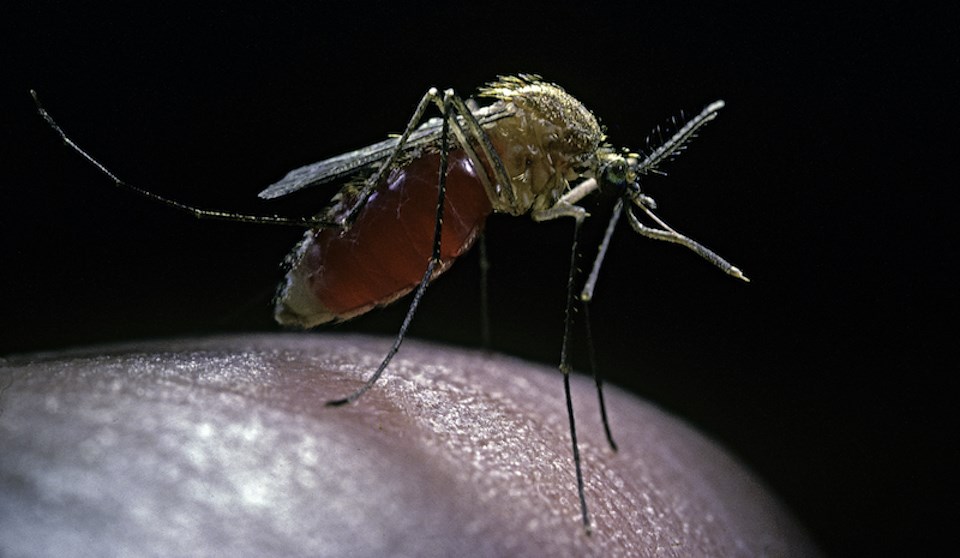Metro Vancouver has seen a noteworthy uptick in mosquitoes over the past few weeks.
While June and the first half of July were bone dry across the Lower Mainland, the first rain event of the summer submerged resting mosquito eggs in water, which provided the "hatching cue," according to University of British Columbia (UBC) Zoology Professor Dr. Ben Matthews.
Back in May, Matthews predicted that there may be a "big emergence" of mosquitoes following some wet weather since many of the problematic mosquito species hatch in places with standing water when temperatures soar.
"We have over 50 known species of mosquitoes in British Columbia," he explained, noting that many of them hatch throughout the year. Some of them hibernate through the winter in places like attics and trees, emerging in the spring to feast.
Metro Vancouverites have reported another summer bloodsucker surge following a second rain event from Aug. 9 to Aug. 10. Over the past few days, the pint-sized pests have been spotted in greater numbers.
"I noticed it in our neighbourhood over the weekend, 10 to 14 days after the rain," Matthews noted, adding that population size will depend on the neighbourhood where you live, as well as the availability of standing bodies of water.
"Adult mosquitoes also much prefer hot and relatively dry weather and there is increased activity. They are not warm-blooded. If it is cool they get sluggish and they will find a place to hang out overnight."
Metro Vancouver weather impacts the mosquito population
Depending on the species, most adult mosquitoes tend to increase their activity in the 20 C range and up. That said, they can survive in a four-degree fridge -- but they won't be buzzing around it.
While there were very few of the tiny buzzers around in July and most of August, there has been a "dramatic change" over the last week.
"We basically got a big synchronized hatch," Matthews explained, noting that all of the eggs hatched in a couple of isolated periods rather than gradually over the course of the summer. Since temperatures increased immediately after the rain, larvae development sped up, prompting an even more drastic emergence of new adults.
But adult mosquitoes don't always experience a long life in the wild. In a lab, they might live for two or three months but face predation from birds, bats, and other animals while trying to find a meal, meaning that they may only live for a few weeks or so.
Matthews says that there may be another mosquito boom before the summer ends, depending on the weather in the coming weeks. All of the adults that are currently buzzing around will look for places to lay their eggs and then those could hatch following the next rainy event.
To prevent bites, wear long pants and protect yourself in areas where the bloodsuckers are plentiful. Thankfully, they are more annoying rather than harmful in our backyard.
"We're lucky in B.C. We don't have a lot of mosquito-borne illnesses, so they are mostly a nuisance."



